- Student
- 02/10/2020
Whether to go, come back or stay
Prime Minister Mark Rutte appealed to Dutch companies this summer to ‘please keep offering enough internship placements at this difficult time’. While TU/e students are still managing to find placements – in the Netherlands – they are certainly having a different experience of work compared to pre-corona interns. Many companies are keeping most of their employees at home. So, how can you get some work experience?
In the early days of the corona pandemic, Peter Koets, internship coordinator at Chemical Engineering and Chemistry, found his concerns about students often gave him a headache, both literally and figuratively. At CEC an industrial internship is a compulsory part of the curriculum. Things were both uncertain and hectic, and this combination was the main cause of Koets' troubles. “We had interns in Japan who were initially safe, but that changed and so they had to come home. We had companies who no longer wanted to have interns, despite contracts. Graduations that were delayed… Looking back, things could have been many times worse. We managed.”
Their success, he believes, is due to the pragmatic approach he and -former- Dean Emiel Hensen adopted. “The Flemish student living with his parents in Antwerp while he did his internship there was left to continue. Similarly, an internship in Iceland - our Icelandic student is over there living with his parents - is also continuing,” says Koets.
The seventy students needing to do an CEC internship in 2020 have all found their own placements. Only two did their internship entirely online, Koets knows. “By contrast, some were able - back in May - to spend five days a week at the employer's premises. Most students were allowed to be on site part of the week.”

Koets now has five interns on foreign soil; in previous years typically 30 percent of chemistry students would have been abroad. “I'm in touch with these students twice a week. We are keeping a close eye on things.” For Q2 and Q3 no applications to go abroad have as yet been submitted.
The disaster the internship coordinator feared did not, in fact, materialize. “The biggest problem to date seems to be that roughly twenty students have had to postpone their internship, which has delayed their studies by a couple of months.”
Canadian plans
As the last step in his Master's of Biomedical Engineering, Leander van Eekelen found an internship placement at the École Polytechnique Montreal for the period September 1st to December 31st 2020. He had even received a grant offered by research funding body Mitacs to bring foreign students to Canada for an internship. In mid-February he learned that his project proposal had been accepted.
“In March, when the pandemic really took hold, Canada closed its borders and I was mailing back and forth with Mitacs,” says Van Eekelen. “I was initially optimistic that in September everything would go ahead as planned. Back in March, however, Mitacs had little more to offer me than some advice: wait and see. Eventually, in June, TU/e's Executive Board decided that internships outside the EU would not go ahead until February 2021. That was the death knell for my internship in Montreal.”
Postponement was not an option. “Now I had nothing to fill those six months and the internship is supposed to be the last part of my program.” Van Eekelen eventually decided to do the internship digitally, under remote supervision from Canada. “I lost the grant, by the way.”
Already in Canada
On January 31st, Nicky van den Berg, a master's student of Industrial and Applied Mathematics, was already in Canada and had started her internship at the University of Western Ontario. She found her feet fairly quickly. “I had a desk at the university and friendly colleagues. Fired up with enthusiasm, I was making a start on my project. After about six weeks the situation changed rapidly. On Thursday March 12th, the day the WHO announced that COVID-19 was a pandemic, the university decided to call a halt to all activities with immediate effect and to move all its lectures online. Students were no longer supposed to come the campus.”
From that day onward, Van den Berg has continued her internship from her lodgings in Canada. She was also looking forward to traveling in Canada at the end of her internship, but has abandoned that plan.
Whether a foreign exchange will be reinstated in Q3 as an option available to students is a decision that TU/e's Executive Board has not yet taken. Depending on corona-related developments and the national guidelines, the Board expects to be able to take a decision in mid-November. ‘We are coordinating our decision as far as possible with our partner universities,’ wrote secretary to the Executive Board Susanne van Weelden on September 17th.
Staying home

An internship is not compulsory for all TU/e students, it depends on their program. And even where it is compulsory, the student can choose between home or abroad. Further flexibility comes with the type of internship: a business internship or a research internship.
Associate Professor Alessandro Di Bucchianico coordinates the internships for the Master's of Industrial and Applied Mathematics (IAM). “Internships are not mandatory here. Research internships are few and far between at IAM; most students are keen to gain experience at a company. In recent years, almost half of the roughly fifty IAM students have done a business internship. As for students who go abroad, I have no figures; ESA started gathering this data only recently. It wouldn't be more than five a year.”
Arthur Nijdam, who is taking a dual degree (Electrical Engineering and Biomedical Engineering), has changed his internship plans. “I originally wanted to go abroad in Q4 of this academic year, but on reflection I thought it was too risky. I've been getting good grades recently - COVID-19 has made it possible for me to study at my own tempo more often and my grades have improved - and so I have been invited to do an internship at Onera, which I can do part time alongside my courses. This is actually ideal for me,” says Nijdam, who started at the Eindhoven-based startup back in August. “What with all my courses being online I'm able to be a bit more flexible, too.”
Headaches due to postponement
A dream Thomas Wiepking cherishes is to do an internship at CERN in Geneva and if it weren't for corona, the master's student of Embedded Systems would have already applied. “Until the situation improves, I'm going to hang fire because I can't help feeling that it won't take much for a company is withdraw its offer. If COVID-19 is on the retreat in a couple of months' time, I think my chances will be better.”
Wiepking's internship is planned for Q4. “The timing is deliberate; the summer vacation will give me some room for maneuver. Some companies and organizations are only taking on students who stay for at least three months and that would fall outside a regular quartile. If the internship is abroad, it is also nice to have a week to settle in before the real work begins.”
He isn't ruling out the possibility of a postponement until Q1 of the 2021/2022 academic year. “But that would delay my studies by a quartile because at Embedded Systems before you graduate you have to take a course worth 10 ECTS that serves as preparation for graduating. That's now planned for Q1, and my graduation is scheduled for Q2/Q3. If I shift that to Q4 and then start Q1 with an internship, there would be too much time between the preparatory course and the actual graduation, and that is strongly advised against. This is why I am keen to keep my internship period in Q4 and, if necessary, I will forgo doing my internship abroad.”
Wiepking recognizes that an online internship offers an alternative. “But it means losing out on the work experience and that, as it happens, is my main reason for doing an internship.”
Work experience and supervision
Although Leander van Eekelen is gaining good work experience during his research internship, his supervision is far from ideal. He has his thesis for comparison, which he did at Radboud University in Nijmegen. “Something I appreciated immensely was that I could always walk into my supervisor's office and ask a question. Not only was that efficient, it was just plain sociable. We had interpersonal contact, and that's something that I am now really missing.”
An added challenge for students who receive supervision from abroad is the time difference. Van Eekelen is locked into a Canadian time zone. “Here in the Netherlands we are six hours ahead of Montreal, so in practice I can't ask my supervisor any questions until about three in the afternoon and after five p.m. a lot of demands are placed on me. My lab plans a lot of meetings for five p.m. their time - no idea why - so for me it means sitting in meetings at 11 o'clock at night. When obviously I'm all done in.”
Doing an internship from home is tricky for many students. Nicky van den Berg was not used to discussing work content in a digital environment. “The assignment I was initially given was ultimately modified, partly due to the lockdown we found ourselves in in Ontario. Because the situation changed considerably overnight, my internship lasted a month longer than planned.”
Intern Arthur Nijdam has no problem at all with doing an internship from home. He is welcome at the office but finds he can work from home on his laptop just as well. “Because my field is machine learning and I can easily do my work remotely from my own laptop, it isn't going to pose much of a problem to me if the measures are tightened up again.”
And how are the internship hosts finding it?
Part-time professor Wil Michiels works for NXP in the Competence Center Crypto and Security. He and his colleagues work on security vulnerabilities in machine learning algorithms. In addition, one day a week he fulfils his duties as professor in the Security group at TU/e's Department of Mathematics and Computer Science.
The internship assignments being carried out within Michiels’ group, albeit no longer on the High Tech Campus but from home, are still up to scratch in terms of their quality. It is mainly the student who is bearing the brunt, he points out. “If students choose a business internship over a project at TU/e, they do so deliberately. But now they aren't experiencing the goings-on at NXP, and it is harder for them to become part of the team. New members joining a team often start out watching from the sidelines until they feel comfortable enough to get involved. When meetings are online it is very difficult to get beyond this first phase. Without face-to-face contact you don't get to know each other well. So it is less fun for us, too. Young people bring an injection of energy and I always enjoy having them with us. With corona measures in force, the relationship becomes very functional; the enjoyment is missing.”
In terms of content, the supervision of the ‘home-based assignments’ is going well. If Michiels comes across some minor issue, a conversation over Skype can sort it out and there is no evidence in the theses that corona has kept students from the workfloor. But the fun is missing. “We miss the chats in the coffee break, during lunch and before and after a meeting. These informal conversations often spark new insights and give the intern a chance to see the inner workings of the company.”
Even in the current situation interns and graduates are welcome at NXP, as they will be in the new academic year. “But when it comes to the choice of topic, however, we will be factoring in whether it can be carried out more independently than we have been used to,” says Michiels.
Proportion
Thomas Schuurmans manages Proportion, an innovation consultancy. When ID student Aya Bergkamp did an internship last year, she was able to go to the company's office in Amsterdam five days a week. “Students come here harboring various wishes. Sometimes they want to shadow someone, other times they want to participate in a complete design cycle. Our firm employs human-centered design consultants. Proportion prefers to send interns off to do field research. To Rwanda, for example, where a topical assignment is in progress. “It's a problem for us that this is not possible right now. But, on the other hand, we are keen to work with local researchers and it is our ambition to find a representative in every African country. This is the current trend, corona is just a catalyst. In Rwanda, we went in search of a local researcher able to implement the research plan we have prepared, using our methodology. Flying in from the Netherlands is an outdated idea, we've known that for years.”
None of which means that Schuurmans does not still want his interns to do fieldwork. “As soon as travel is again possible, we hope to give them that experience in the field. Remote working is second best.”
10 tips for a home internship
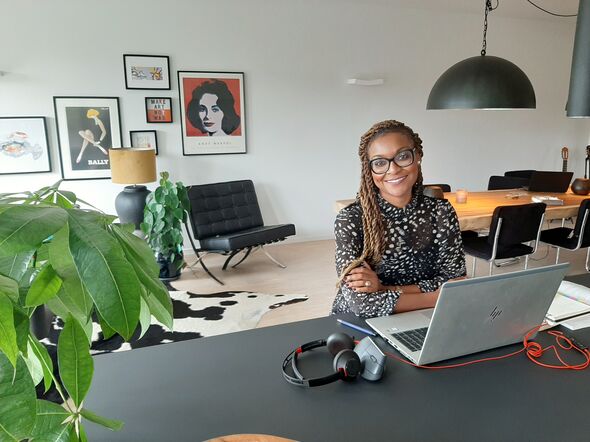
We asked student psychologist Rachel Falleyn for her tips for a successful 'home internship'.
For the student
- This type of internship asks that you show more initiative and that you are bolder than would be necessary in a traditional internship. It is now easier for you to make contact - online - with colleagues at different locations, even worldwide!
- Make as much use as you can of the unique opportunity to take part in any virtual workshops your company may run. You can pick up a great deal of knowledge and information this way.
- Ask your internship supervisor whether a network of other interns exists so that you can make virtual contact.
- Remember to use video chatting to connect socially; take part in Zoom dates to drink coffee together, or a happy hour to get to know your colleagues better.
- Be sure to take enough breaks away from the screen. You are spending the whole day sitting in front of a screen, so take a break by going outdoors and taking a walk.
- Give yourself time to get used to this experience of a virtual internship. Think about where you set the bar for yourself and try not to set it too high. You don't have to master everything within a week. You are still allowed to ask questions, make mistakes and be confused by all the information coming your way. Keep breathing. And remember, many companies are also new to this. This is their first time at providing supervision remotely.
For the internship supervisor
- Be sure to provide clear goals and expectations.
- Have regular contact with your intern and give plenty of feedback: this helps the intern stay motivated, achieve their goals, and prevents them developing a feeling of isolation.
- Mention every possible way interns can get in touch with other people. Help them to feel part of the team, and this includes saying that their having to work remotely is a first; this is a unique situation.
- Give your interns a buddy or a mentor and the right equipment to make a success of remote working.
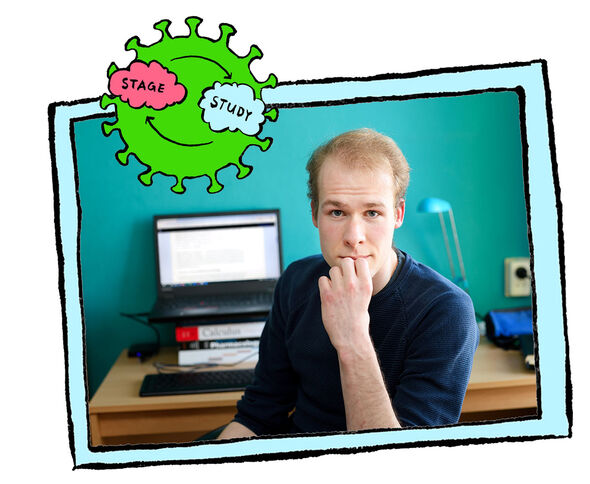
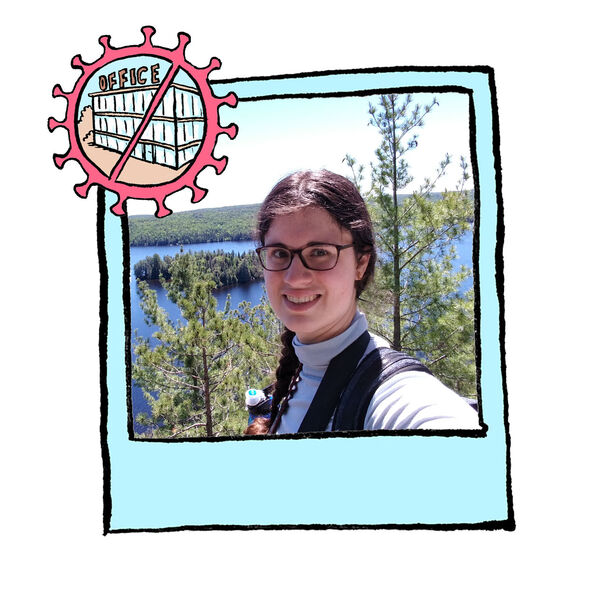

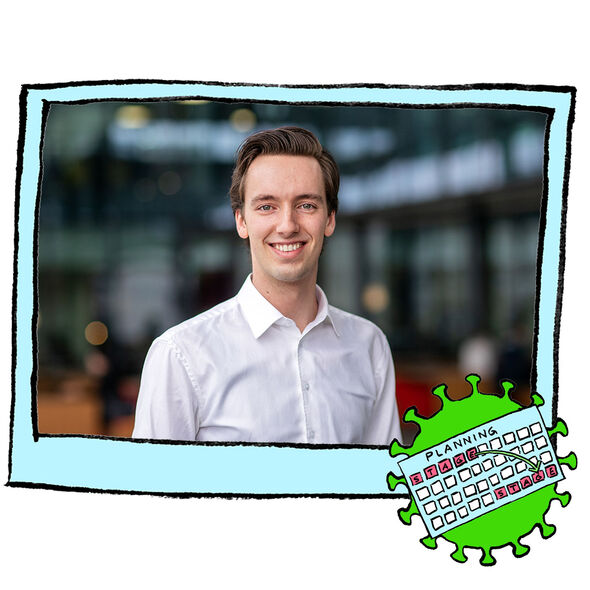

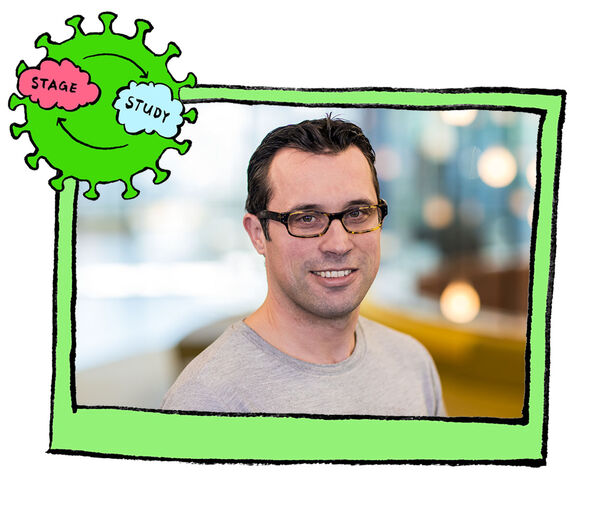
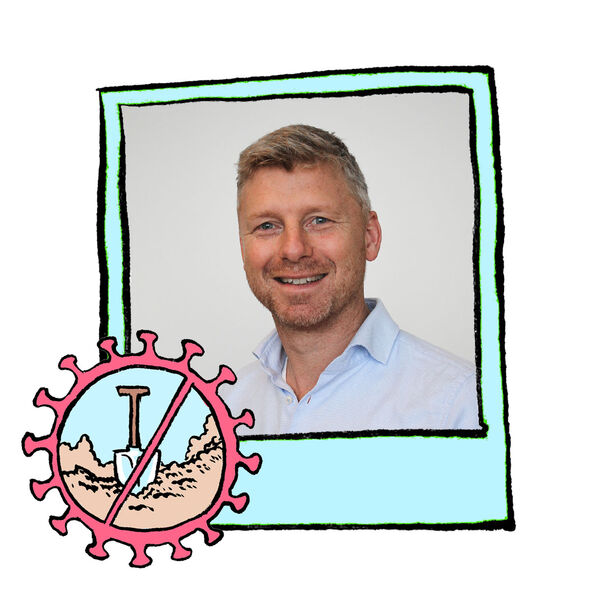
Discussion